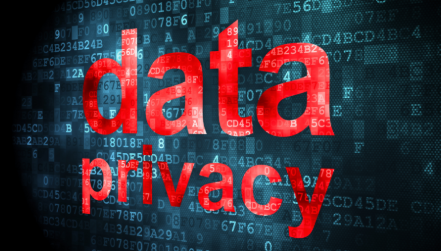In today’s hyper-connected world, we generate an astonishing amount of personal data every single day. From online shopping and social media posts to GPS tracking and smart home devices, our digital footprints are everywhere. But have you ever stopped to think about what happens to all that data? Who collects it? How is it used? And more importantly, how secure is it?
With data breaches, identity theft, and mass surveillance becoming more common, protecting our personal information is no longer an option—it’s a necessity. Here’s why data privacy matters now more than ever and what you can do to safeguard your digital identity.
1. Your Data Is More Valuable Than You Think
Many people assume that their personal data isn’t valuable because they’re “not famous†or “have nothing to hide.†But in reality, your data is a goldmine for companies, advertisers, hackers, and even governments.
Tech giants like Google, Facebook, and Amazon collect vast amounts of user data to create highly targeted ads, making billions in revenue.
Hackers can steal personal information to commit identity fraud, empty bank accounts, or even blackmail individuals.
Governments around the world use surveillance programs to monitor citizens’ activities online, often in the name of national security.
Whether it’s your browsing history, location data, medical records, or personal conversations, your data holds more value than you might realize.
2. Big Tech and the Data Economy
The internet runs on data, and tech companies have built entire business models around collecting, analyzing, and monetizing user information. This is often done under the pretense of “improving user experience,†but the reality is that your personal data fuels the trillion-dollar advertising industry.
How Big Tech Uses Your Data:
Personalized advertising: Ever searched for a product and suddenly started seeing ads for it everywhere? That’s data tracking in action.
Behavioral predictions: Companies analyze your habits to predict what you might buy, watch, or click next.
Selling to third parties: Many companies sell user data to advertisers, data brokers, and other organizations without explicit user consent.
The lack of transparency in how our data is used is a growing concern, making it more crucial than ever to take control of our privacy.
3. The Rise in Data Breaches and Cyber Threats
Data breaches are becoming alarmingly frequent, exposing millions of users’ personal and financial information to cybercriminals.
Some of the biggest breaches in recent history include:
Facebook (2019) – Exposed over 540 million user records.
Equifax (2017) – Leaked the sensitive financial data of 147 million people.
Yahoo (2013-2014) – Compromised 3 billion accounts, the largest breach in history.
The consequences of such breaches range from financial fraud to identity theft and reputational damage. The reality is, no system is 100% secure, and as technology advances, so do the tactics of cybercriminals.
4. Why Government Surveillance Is a Concern
Many governments justify mass data collection as a means to enhance national security and prevent crimes. However, surveillance programs often violate personal privacy and can be misused to monitor individuals without their knowledge.
Notable examples include:
Edward Snowden’s revelations (2013): Exposed how the NSA (U.S. National Security Agency) was spying on millions of people worldwide.
China’s social credit system: Uses data tracking and surveillance to monitor and control citizen behavior.
India’s Aadhaar controversy: The world’s largest biometric ID system has faced criticism for data leaks and privacy concerns.
While security is important, there must be a balance between protection and personal freedoms.
5. How You Can Protect Your Data
Now that you understand the risks, here are some practical steps to safeguard your data online:
Use Strong Passwords and Two-Factor Authentication (2FA)
Create complex, unique passwords for different accounts.
Use password managers like LastPass or Bitwarden to store them securely.
Enable 2FA for an extra layer of security.
Be Mindful of What You Share Online
Limit personal details you post on social media (birthdate, address, phone number).
Adjust privacy settings to restrict who can view your information.
Use Encrypted Messaging and VPNs
Use apps like Signal or Telegram for private messaging.
A Virtual Private Network (VPN) helps hide your IP address and browsing activity from prying eyes.
Avoid Public Wi-Fi for Sensitive Transactions
Hackers can intercept data on unsecured networks.
If you must use public Wi-Fi, connect via a VPN.
Regularly Update Your Software
Updates often fix security vulnerabilities.
Enable automatic updates where possible.
Conclusion: Take Control of Your Digital Privacy
In the digital age, data privacy is no longer just about protecting passwords—it’s about safeguarding your identity, security, and freedom. The more we educate ourselves and take proactive steps, the harder it becomes for corporations, hackers, and even governments to exploit our information.
Your data is YOURS. Protect it, value it, and don’t let it be taken for granted.
What’s your take on data privacy? Do you think tech companies and governments are doing enough to protect our data, or is it up to us? Share your thoughts below!




No comments yet
Be the first to share your thoughts!